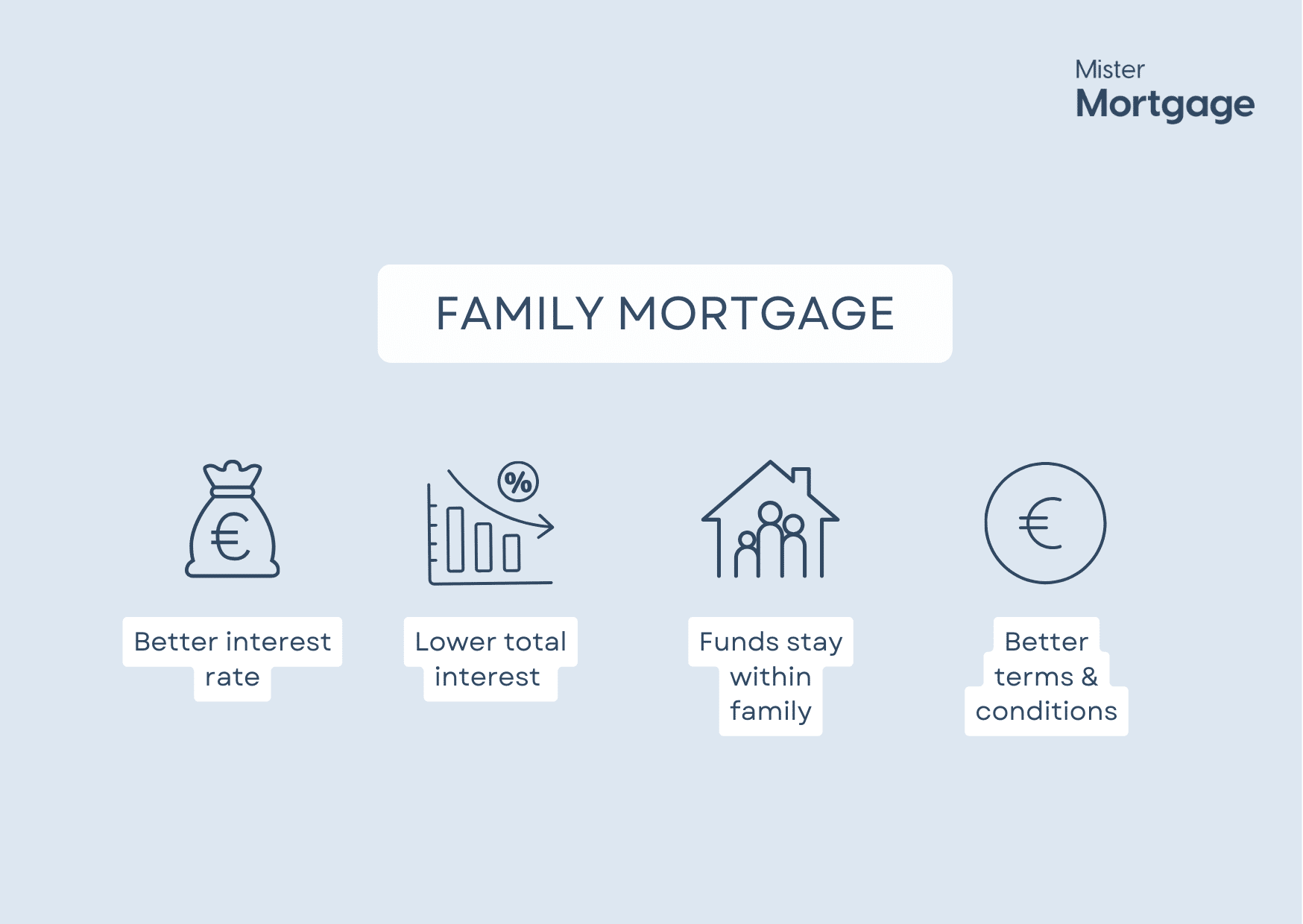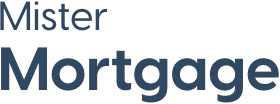
When buying a house, you usually consider getting a mortgage from a bank or a mortgage lender. Another option is to borrow from your parents or relatives, known as a family mortgage.
What is a family mortgage?
A family mortgage works just like a regular mortgage. You agree with your loan provider on certain terms, conditions, and understanding between family members involved in the lending and borrowing.
What are the benefits of a family mortgage?
There are the benefits of receiving donations from family:
-
The primary advantage of a family mortgage is that the funds remain within the family. For those lending the money, the benefit lies in earning higher revenue than placing the funds in a savings account.
-
You could benefit from borrowing more money. Also, if you get a mortgage from the bank and the family mortgage, you will likely have to pay less overall interest.
A family mortgage works similarly to a traditional mortgage, but it offers key benefits for first-time homebuyers. One major advantage is negotiating mortgage terms with family members, providing more flexibility. Additionally, the money remains within the family, making it a more sustainable financing option.
Example of family mortgage calculations
Suppose you borrow €200,000 from your parents to supplement your mortgage when purchasing your first home. In this case, you make monthly repayments to your parents, just like with a standard mortgage.
Risks of a family mortgage
Since a family mortgage often involves large amounts of money, there are risks that you cannot oversee:
-
Consider potential scenarios like unemployment or disability.
-
Parents must ensure they maintain financial stability after providing the donation.
-
Future family changes, such as marriages, divorces, or changes in financial situations, might impact the loan agreement or create complications.
Because of these risks, seeking a mortgage advisor's advice before drawing up an agreement is crucial.
A family mortgage could often offer a lower interest rate than a traditional lender. This can result in lower monthly payments, making it easier to manage the mortgage and saving money in the long run.
For example, if the current market interest rates are between 3.5% and 4%, you could agree with a family member on an interest rate between 3% and 3.5%. It’s important to note that the interest rate should still be competitive with the current market rates.
Mortgage interest deduction
A family mortgage can cover the entire cost of your home, but you can also choose to take only a portion of the loan as a family mortgage. Like a typical mortgage, you can deduct the interest from a family mortgage on your tax return if you meet these three requirements:
-
The interest must be in line with the market.
-
The loan must be repaid within 30 years.
-
The terms and conditions must be recorded in writing, often through a notary.
-
Loan for the primary residence.
Requirements
Like a bank, your family members must report each year on the money you have repaid and the interest you have paid. This info must be shared with the Dutch Tax Authorities. You must pay the interest and mortgage repayment; you can't escape it through forgiveness.
Parents or other family members can provide a financial gift to support a home purchase instead of providing a family mortgage.
When arranging a family mortgage, it is recommended to visit the notary to prevent any disputes in the future. The agreement should outline key details, including the interest rate, loan amount, repayment period, and repayment method.


Emma and Tom want to buy a house for €420,000. They want to borrow €380,000, and their parents, living outside of the Netherlands, agreed to help them with a family mortgage of €40,000. With their parents, they decided on a 30-year loan, a 3.5% annual interest rate, and monthly annuity payments covering both interest and repayment.
You can combine a family mortgage with a bank mortgage. The bank will consider both loans when assessing your ability to repay, ensuring your total monthly payments fit within your financial capacity. It’s important to inform the bank about the family loan, and while not required, formalizing the family mortgage with a notary is highly recommended for legal clarity and protection.
Schedule a complimentary introductory call with our mortgage specialists. We specialize in mortgages for expats and can guide you through the process, including buying a home with family support.
-
Access to a trusted network.
-
Highly competitive rates and flexible terms.
-
Guidance through the entire mortgage process.
-
English translations of bank documents are shared.

- 100% Independent Advice




